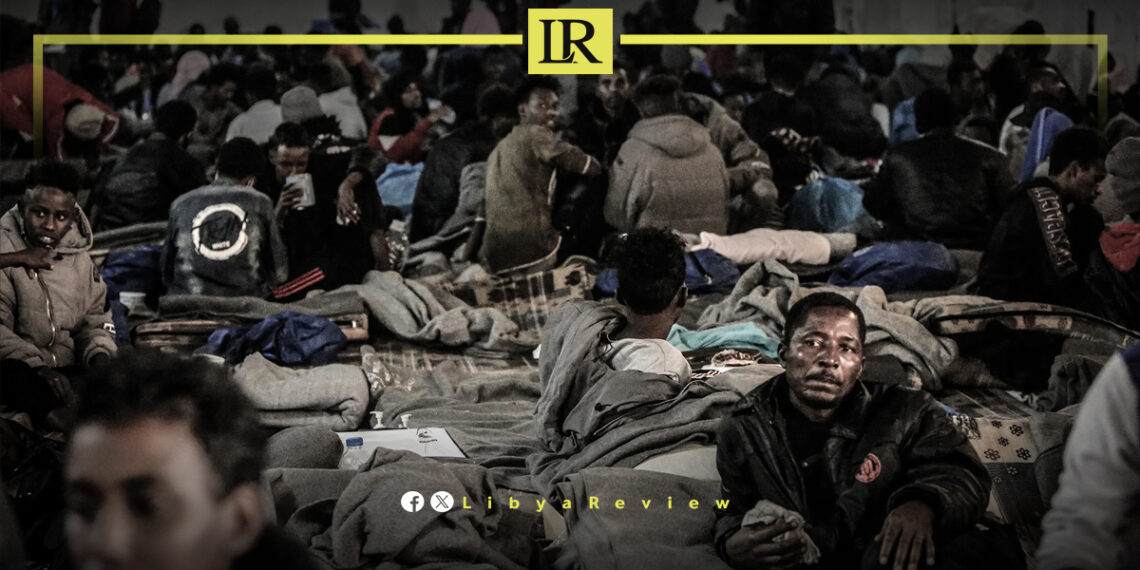Libya remains one of the most dangerous places in the world for migrants, with thousands subjected to brutal violence, trafficking, extortion, and medical neglect, according to a report issued by the Doctors Without Borders/Médecins Sans Frontières (MSF) on Wednesday.
In 2024, the International Organization for Migration (IOM) estimated that 787,000 migrants and refugees were in Libya. Many arrived seeking work, while others hoped to cross the Mediterranean to Europe. Instead, they find themselves trapped in inhumane conditions, abused, and denied access to healthcare.
For migrants in Libya, violence is constant. They are kidnapped, tortured, and extorted for ransom. Women and children face sexual abuse. Inside and outside detention centers, migrants are treated as commodities, exploited by traffickers, militias, and corrupt officials.
Without legal status, migrants have no protection and no access to medical care. They live in overcrowded, unsanitary, and unsafe conditions, at risk of malnutrition and disease.
“People living undocumented in Libya have no legal protection, which prevents them from accessing healthcare,” says Steve Purbrick, head of Médecins Sans Frontières (MSF) programs in Libya. “They are exposed to violence daily. We see people who have been trafficked, tortured, and raped.”
MSF teams in Misrata, Tripoli, and Zuwara provide basic healthcare, mental health support, and treatment for tuberculosis and sexual violence survivors. In 2024 alone, MSF carried out more than 15,000 medical consultations. Most mental health patients suffer from post-traumatic stress disorder (PTSD) caused by the abuse they endured.
One patient, Ahmed, a young Sudanese migrant, was brutally beaten after being arrested while trying to reach Tunisia.
“I fainted under the blows, and when I woke up, they were still beating me. I was disfigured, I had no teeth, and my friend Saud told me they had hit my head with a brick,” he recalls.
Ahmed was hospitalized for a month under MSF’s care in Zuwara. His jaw operation was only possible because MSF funded it, as no alternative treatment was available for migrants in Libya.
Libya is the main departure point for migrants trying to reach Italy, but before they can leave, many are captured by armed groups, traffickers, and militias.
“Your destiny can change at any moment in Libya,” says Nelson, a migrant from Cameroon. “One wrong step, and you can die, be imprisoned, or disappear.”
Nelson lost his wife and two children when their boat sank in the Mediterranean. He has been receiving psychological support from MSF since surviving the disaster.
According to MSF, migrants in Libya are part of an economic system controlled by militias, with European complicity.
“People on the move are part of a system designed to extort them. They pay to cross, to be released from prison, to continue their journey—always at risk of falling into the hands of criminals again,” says Purbrick.
The European Union (EU) has provided funding and equipment to the Libyan Coast Guard to intercept migrant boats and return them to Libya, where they are often thrown into detention centers and subjected to further abuse.
Humanitarian organizations are working to evacuate the most vulnerable migrants. Since 2021, over 700 people have been safely transferred from Libya to Italy, including 60 MSF patients.
“We need more safe and legal pathways to evacuate people,” says Purbrick. “We identify the most vulnerable, but these options are extremely limited.”
In April 2023, the United Nations published a report confirming that crimes against humanity have been committed against migrants in Libya. Despite clear evidence of systematic abuse, the international response remains weak, leaving thousands of people trapped in extreme suffering.


